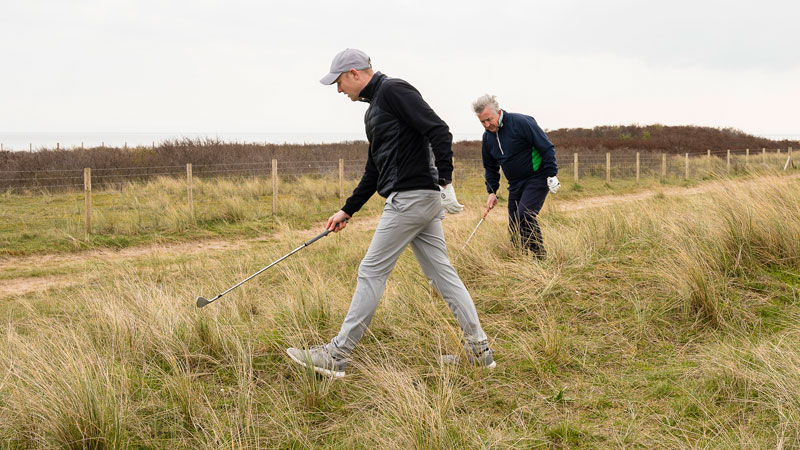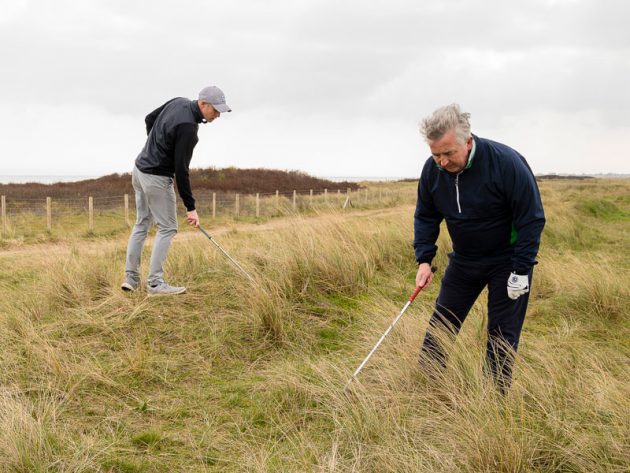Most Broken Golf Rules - Declaring Your Ball Lost
Contrary to what many people think, the Rules make no allowance for declaring your ball lost. It's not what you say, but what you do that counts...


Declaring your ball lost is a tempting option when you hit it deep into the jungle, but such verbal declarations are meaningless under the Rules of Golf...
Most Broken Golf Rules - Declaring Your Ball Lost
When you hit your ball deep into the sort of territory where it’s possible to lose a bag, let alone a ball, and then proceed to crush your provisional ball 250 yards straight down the middle, clearly there would be much merit in declaring your ball lost and focusing on trying to salvage bogey with the provisional ball.
Sadly the Rules make no allowance for such a course of action, and it is worth remembering that you cannot render your original ball lost simply by declaration.
Saying, “I’ll just declare that one lost” is a meaningless phrase under the Rules of golf, for it’s not what you say that matters in such circumstances, but what you do.
It is, indeed, one of golf’s greatest myths that you can declare your ball lost, and we will all at times have played with someone who has uttered words to that effect.
Related: 7 Simple Golf Rules Mistakes
Subscribe to the Golf Monthly newsletter to stay up to date with all the latest tour news, equipment news, reviews, head-to-heads and buyer’s guides from our team of experienced experts.
But the reality is that your ball can only be considered lost under the Rules when...
a) You have failed to find or identify the ball as yours within three minutes of you or anyone on your side (caddie, or playing partner in a pairs competition) starting the search for it.

b) You make a stroke at your provisional ball (if you have played one) from the place where the original ball is likely to be or nearer to the hole than that spot.
c) You have already put another ball into play under penalty of stroke and distance (rather than designating it a provisional ball).
d) You’ve put another ball into play because it is known or virtually certain that the unfound original ball has been moved by an outside agency, or is in an obstruction, an abnormal ground condition or a water hazard. In such circumstances you should proceed under the appropriate Rule for each scenario.
Related: 8 Rules Golfers Break Without Realising
e) You have made a stroke at a substituted ball.
The good news is that you are not obliged to look for your ball if you don’t want to, and 99 times out of 100, those playing with you will be delighted not to be asked to rummage around in impenetrable rough for five minutes.
However, there is nothing to stop your opponent or fellow-competitor looking, and although good etiquette would probably suggest that they wouldn’t feel inclined to do so if you have clearly stated your intention to abandon it, there may just be the odd time in a match where he may want to.
For example if your opponent hits a shot into trouble and doesn’t want you to look for it, there is no rule to stop you from trying to find it because then that means they will have to play the hole from that difficult spot. It may make the match a bit frosty, but it is important to know the rule here.
Related: 10 Golf Rules Myths
And, of course, the simplest course of action if you really don’t want anyone looking for your original ball is to follow option (c) above and simply hit another ball without declaring it a provisional.
The downside to this is that, in the unlikely event that your original ball had actually taken an unseen fortunate ricochet back into play, you then wouldn’t be able to continue with it even if it was slap bang in the middle of the fairway!
For more rules content check out the Golf Monthly website.

Location: True Fit Golf Centre
Using different styles, teaching aids, technology and games to measure improvements, Ged is keen to make the learning process educational and fun. He's worked with a number of top local, national and international instructors, including Adrian Fryer and Jeff Ritter, one of the most prominent golf instructors in America. He's based at True Fit Golf Centre in Warrington, where he can be found coaching golfers of all abilities. He's also working hard on his own game with the aim of playing on the senior Tour (when the time comes).
Students learn best when...
They leave their baggage at the door; this way they will garner a clearer understanding of their issues and how they can
improve.
Advice for practice:
Don't go rogue! You will never improve if you don't practice how your coach has told you to.
Most common problem:
Too many golfers judge if they have done what you ask by the outcome, yet that will not always be what they want to see when making changes. Focus on the process and the outcome will take care of itself.